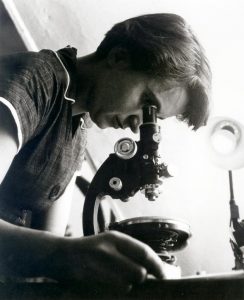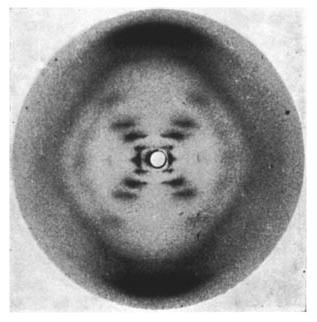In our research for OpenSTEM material we often find (or rediscover) that the “famous” person we all know is not the person who actually first did whatever it was. This applies to inventors, scientists, explorers.
Marco Polo was not the first to go East and hang out with the heirs of Genghis Khan, Magellan did not actually circumnavigate the world (he died on the way, in the Philippines), and so on.
In the field of science this has also happened quite often and it’s quite frustrating (to put it mildly). It’s important that the people who do the work credit the credit – and particularly not other people claiming (or otherwise getting, such as through a Nobel prize) that work as their own. That’s distinctly uncool.

Rosalind Franklin was an accomplished British chemist and X-ray crystallographer. It was her work that first showed the double-helix form of DNA. Watson & Crick (with Wilkins) ran with it (without her permission even) and they only mentioned her name in a footnote. As we all know, Watson, Crick and Wilkins received the Nobel prize for “discovering DNA”. False history.

(Raymond Gosling/King’s College London)
While it’s not exclusively women who get a bad deal here, there are a fair number, and the research shows that this is often as a result of some very arrogant other people in their surroundings who grab and run with the work. Sexism and chauvinism have played a big role there.
An article by Katherine Handcock at A Mighty Girl provides a short bio of 15 Women Scientists – many of which you may never have heard of, but all of which did critical work. She writes:
For centuries, women have made important contributions to the sciences, but in many cases, it took far too long for their discoveries to be recognized — if they were acknowledged at all. And too often, books and academic courses that explore the history of science neglect the remarkable, ground breaking women who changed the world. In fact, it’s a rare person, child or adult, who can name more than two or three female scientists from history — and, even in those instances, the same few names are usually mentioned time and again.
Read the full article at A Might Girl: Those Who Dared To Discover: 15 Women Scientists You Should Know





The kit was easy while still fun to build (except maybe for fitting the wires in). This was a fun…
Florence (15) and Keito (14), students at Hakusan International School